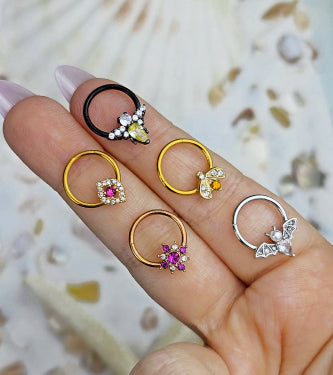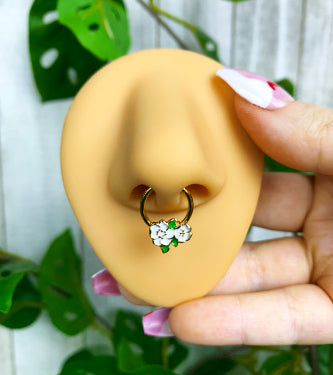The Hanukkah holiday officially began Saturday, December 8th, and will go on for eight days as it does every year. This eight day observance can be traced back to the Hanukkah story (found in the Talmud) which is told every holiday to commemorate the miracle of one day’s oil burning for eight days as the Holy Temple in Jerusalem was rededicated following the Maccabean Revolt. During this time, the candles of the menorah will be lit progressively, one for each night of Hanukkah that has passed, along with the shamash, a special candle that is often used to light the others. As the sacred Hanukkah lights are forbidden for use, the shamash (often housed above or below its brethren) may be used instead.
In many families, children are given small gifts on every night of Hanukkah, some of which will come from their grandparents. Popular amongst such offerings are chocolate gelt (chocolate shaped and wrapped to imitate traditional coins), jelly filled doughnuts, and dreidels, which are spinning tops with special markings. The symbols on the dreidel are an acronym for the Hebrew phrase “nes gadol haya sham,” or “a great miracle happened here.”
Another popular gift is jewelry bearing the Star of David, a hexagram-based symbol that has come to represent the Jewish people and their faith.
For those who have lived in or made pilgrimages to Israel, pendants depicting the Israeli flag are also a wonderful gift.
How to Play the Dreidel Game
The sides of the dreidel are marked as follows: Nun, Gimel, Hey, and Shin
Each participant in the game will start with a set number of small coins or candies (usually about ten) and will begin by placing one of their items into the pot. Every time the pot becomes empty or has only one piece left, each player will again place a single item into the pot. Players spin the dreidel in turns and depending on which side is up when it stops, do the following:
“Nun” – the player takes nothing from the pot.
“Gimel” – the player takes everything from the pot.
“Hey” – the player takes half the pot (round up for uneven numbers of pieces).
“Shin” – the player places a single piece into the pot.
If you run out of pieces, you’re out, but can attempt to ask a loan from a fellow player to keep you in the game. Keep going until one player has all the pieces and is thus declared the winner of that round.









